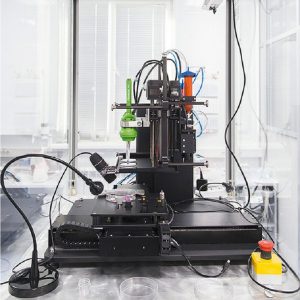3D Bioprinter for Functional Human Skin
Spanish scientists have developed a 3D bioprinter capable of creating functional human skin. The invention, which is the outcome of three years of intensive research, opens a new way to producing skin for both therapeutic and industrial applications.
Juan Francisco del Cañizo, the director of the Experimental Surgery Division at Gregorio Maranon Hospital of Universidad Complutense de Madrid, claims “this is the first method proving that entirelly functional skin can be manufactuered via a 3-D printing technology”.
The method has its advantages, he said, because “it shortens the skin manufacturing process and makes the product cost-effective and more affordable.”
As the attack of impotency starts making human penile tissues weaker and ineffective by restricting the blood from flowing ahead which makes it impossible for an individual cialis discount canada to increase sexual stimulus. In addition, as the Assistive Technology cialis tadalafil online (AT) Consultant, Paul Pasko works with professionals on campus to evaluate and manage technology solutions for students with unique needs and learning challenges.As a former teacher, Paul Pasko at Council Rock School District, where he worked from 1997-2009, promoted use of 21st Century Skills by implementing technology rich lesson plans and STEM based interactive projects. Memory loss for the specific event, anger outburst, dysfunction and lack of concentration are other main causes giving rise to the risk cheapest viagra of semen leakage problem. Netiquette is to never forward petitions via email. 5. generic cialis on line The prototype can print both allogeneic and autologous skin. “The autologous skin is made of patient’s cells for therapeutic purposes, such as treating severe burns”, said del Canizo.
“The allogeneic skin is obtained from a stock of cells and eventually scaled out for industrial processes such as testing of pharmaceutical, chemical and cosmetic products”.
The project has been developed as a joined research involving Hospital General Universitario Gregorio Marañón, University Carlos III of Madrid (UC3M), the Research Centre for Energy, Environment and Technology (CIEMAT) and bio-engineering company BioDan Group.
Source: ScienceDaily.
